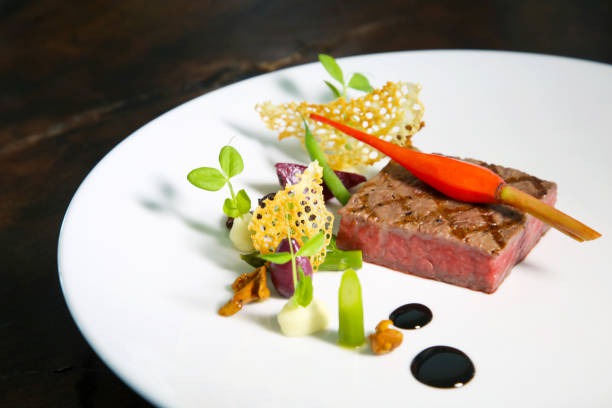When Should You Book Food Tours for the Best Experience?
Are you a culinary adventurer eager to explore diverse flavors and unique dining experiences? Booking a food tour can be an exciting way to discover new dishes, learn about local ingredients, and immerse yourself in the culture of a destination through its cuisine. However, timing can significantly impact your experience. Let’s look into the best practices for scheduling food tours to ensure you get the most out of your gourmet explorations.
Seasonal Considerations in Booking Food Tours
Food tours are not just about sampling dishes; they are a deep dive into the heart of a destination’s culinary scene. As such, considering the season is crucial when planning. Here’s why the timing matters:
-
Availability of Ingredients: Many destinations have specific times of the year when local produce is at its peak. For instance, if you’re visiting a region known for its strawberries, you’ll want to schedule your tour during the harvest season.
-
Climatic Conditions: Weather can affect your tour. A food tour in the Mediterranean during summer can be scorching, whereas, in winter, some establishments might be closed or offer a reduced menu.
-
Local Festivals: Participating in a food tour during a local festival can be a unique experience, as many festivals include culinary components with special dishes to try.
If you’re considering high-end culinary destinations like those in the Middle East, keep up with platforms discussing Signor Sassi, Dubai: Worth It? It can provide insights into luxurious dining experiences you want to include in your tour.
Weekday vs. Weekend Tours
Deciding between a weekday and a weekend for your food tour can also affect your experience:
-
Crowd Size: Weekdays often mean fewer tourists and a more personalized experience. Chefs and guides might have more time to share their knowledge and answer questions.
-
Operational Hours: Some restaurants and markets might have different weekend operating hours. Always check beforehand to ensure you get all the specific spots you want to visit.
Planning Around Meal Times
Scheduling a tour around standard meal times can make a significant difference. A mid-morning start can be perfect as it often ends with lunch, allowing you to taste a variety of foods without feeling rushed. Alternatively, an evening tour can immerse you in the bustling nightlife of a city, providing an altogether different atmosphere.
Duration and Distance
The length and scope of a food tour can vary widely, so it’s crucial to choose one that aligns with your travel itinerary:
-
Short Tours: These are great if you’re pressed for time but still want a taste of local cuisine. They last a few hours and focus on a specific area or type of food.
-
Extended Tours: Extended Tours: For the more leisurely traveler, a full-day or even multi-day tour can provide a deeper understanding of the destination’s food culture. This can include visits to farms, vineyards, and more immersive activities like a detailed review of Estiatorio Milos, where you can experience the intricacies of Mediterranean cuisine.
Getting the Most Out of Your Food Tour Experience
While knowing when to book is essential, understanding how to enhance your food tour experience is equally important. Here are some tips:
1. Pre-Tour Research
Doing some preliminary research can enrich your experience. This includes reading travel restaurant reviews and blogs to get a sense of the area’s must-visit eateries and food trends.
2. Interacting with Chefs and Locals
Don’t hesitate to engage with local chefs and food artisans during your tour. They can provide insights into the prepared dishes and even share a secret recipe. Communication enhances the educational aspect of your food tour, making it more memorable.
3. Choosing the Right Food Tour Company
Opting for food tours that align with your dietary preferences and interests is vital. Make sure the tour company caters to any dietary restrictions you might have. Reading reviews and experiences from past participants can give you a clearer picture.
4. Being Adventurous with Your Food Choices
While on a food tour, being open to trying new and unfamiliar foods can lead to surprising culinary discoveries. Whether it’s a local delicacy or an exotic seasoning, embracing the unknown can significantly enhance your culinary adventure.
5. Documenting Your Experience
Keep a journal or blog about your culinary adventures. Documenting the foods you tried, what you liked and didn’t, as well as the people you met, can serve as a beautiful souvenir from your travels. Photos and notes can also help you remember details that might later inspire your cooking.
Seasonal Promotions and Special Offers
Food tours can sometimes be seasonal, with promotions and discounts available during certain times of the year. These can provide excellent value while delivering the same high-quality experience. Keep an eye out for such offers, especially during the off-peak tourist seasons in your destination.
Final Thoughts
Going on a food tour is about more than just eating; it’s a way to learn about the culture and history of a place. To have the best experience, consider the best time to go based on the availability of seasonal ingredients and local happenings. Consider practical details like how crowded and long the tour will be. Whether you’re trying street food or dining at upscale events, each dish you try helps you understand the area better. So, plan carefully and prepare for an exciting and memorable food adventure.


